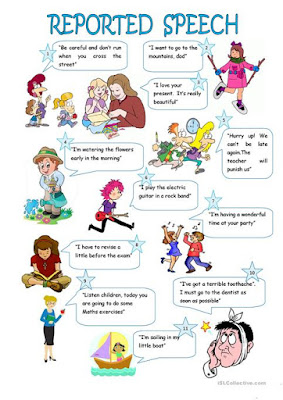SHOULD, SHOULD HAVE
SHOULD, SHOULD HAVE
Se usa
"should" para dar o pedir consejo o para dar opiniones en el presente:
- "I have a
terrible stomachache." "You should go
to the doctor's."
- "I haven’t
heard from my father." "You should call
him."
- "She's not
happy with the salary offered." "She shouldn't accept
the job."
Forma
Se usa "should" / "shouldn't" + el
infinitivo del verbo principal (sin "to")
Ejemplo
Ejemplo
|
I
You He, She, It We They |
should
|
do
|
more exercise.
|
|
get
|
a new car.
|
||
|
shouldn't
(should not) |
smoke.
|
||
|
spend
|
so much money.
|
|
Should
|
I
you he / she / it we they |
get
|
more qualifications?
|
|
wear
|
something different?
|
Should have
Se usa "should have" para dar su opinión o pedir su
opinión en el presente en relación a algo que sucedió en el pasado:
- "I had a terrible stomachache."
"You should have gone to
the doctor’s."
- "I didn’t
hear from my father last week." "You should
have called him."
- "She isn't
happy with the salary she’s getting." "She shouldn't have accepted the
job."
Forma
Se usa "should" / "shouldn't have" +
el participio pasado del verbo principal
Ejemplo
Ejemplo
|
I
You He / She / It We They |
should have
|
taken
|
a taxi.
|
|
shouldn't have
|
written
|
that comment.
|
|
Should
|
I
you he / she / it we they |
have worked
|
overtime?
|








Comentarios
Publicar un comentario